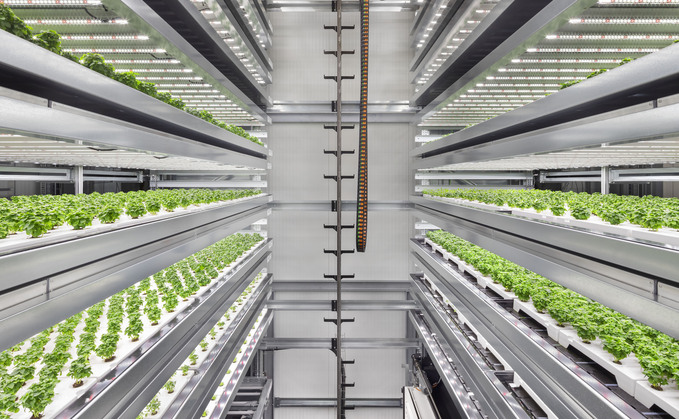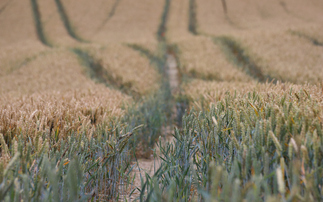
Credit: Infarm
Firms backing the Vertical Farming Manifesto and Identity Statement promise to set industry-wide sustainability standards
Vertical farming companies from around the world have joined together to launch the burgeoning industry's first collective manifesto, promising to set out "clear and bold" sector-wide standards to help firms deliver on their potential to bolster global climate action and food security.
More than 20 vertical farming firms have backed the Vertical Farming Manifesto and Identity Statement, which was launched on Tuesday at the Vertical Farming World Congress in Brussels, Belgium.
The documents set out the industry's vision for how it can play its part in transforming current food systems to help solve what is described as "one of humanity's toughest challenges" - that of providing food for a growing population in a sustainable and circular way.
More than 20 vertical farmers from across the world signed the Manifesto and Identity Statement, including Infarm, 80 Acres, AeroFarms, Bowery, Crop One, CubicFarms, Elevate Farms, Fifth Season, Fischer Farms, Freight Farms, and Stacked Farm, among others.
Proponents of vertical farming, which sees plants and crops such as fruit, vegetables, herbs, and salad leaves grown indoors in controlled environments in vertically stacked layers, argue the practice offers many environmental and efficiency advantages on traditional farming methods.
The industry manifesto claims vertical farming can help to localise production, control the growing environment and shield crops from volatile weather, while requiring less land and water. Moreover, it argues vertical farming also results in fewer transport and logistics emissions as such farms can be located in urban areas closer to higher populations.
However, some critics have questioned the energy footprint of the approach and the industry, like many others, has come under pressure from soaring energy costs.
The Identity Statement argues that with global populations expected to grow to 10 billion by 2050, "current food systems cannot serve the ever-growing demand and ensure reliable access to food", and that vertical farms therefore have a key role to play in building a more sustainable food system.
"We believe that vertical farming can make an important contribution to transforming our food systems and to making them future-proof," it reads. "By decoupling ecosystem destruction from food production through technological means, we reimagine farming from the ground up and are part of the solution to one of humanity's toughest challenges, while reducing the negative impact on the planet."
The Identity Statement comes following steady growth in the industry in recent years, with the market expected to surpass $30bn by 2030.
"We see vertical farming as a technology that must augment and expand traditional farming to solve one of the biggest challenges of our time: feeding a rapidly growing population in an increasingly unstable climate without harming the planet," the Statement adds.
The Manifesto sets out a number of pledges for the sector, including its mission statement "to transform food systems for the benefit of the people and the planet" and "contribute a solution to the deepening ecosystem destruction from food production through technological means".
In addition, vertical farming companies backing the Manifesto have aligned with a range of widely accepted climate and environmental initiatives, such as the Science Based Targets initiative (SBTi), B Corp, or the United Nations Sustainable Development Goals (SDGs), the Manifesto states.
Two farms to sign the Manifesto are from the UK. Jones Food Company, which is headquartered in Lincolnshire, claims to operate Europe's largest vertical farm in Scunthorpe where it has a grow space of more than 5,000sqm.
"As our industry continues to grow it is crucial that we, alongside our colleagues around the world, present a united vision for what we are striving to achieve," said James Lloyd-Jones, CEO of the Jones Food Company. "Together our voices are amplified, championing the numerous benefits of vertical farming and what we have to offer the global food system, namely; growing more of the most delicious fresh food, whilst using far fewer natural resources and bringing us closer to the food we eat."
Jamie Burrows, CEO at London-based Vertical Future, said he was proud to sign the manifesto.
"Our company was founded to make a positive difference to the health of both people and planet and we have built a team focussed on engineering and plant science to improve the quality of crops whilst driving down the production cost, making produce from Vertical Future systems accessible to all," he said.






